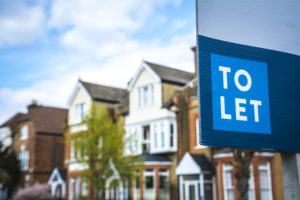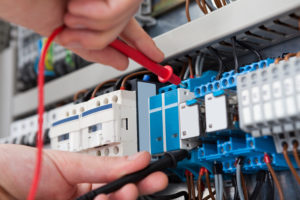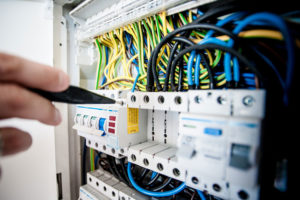If you work in the housing or electrical industry, chances are you already know about the latest regulations for electrical safety in the private rented sector. If you don’t it’s important to know the latest updates and regulations and how this may affect you.
Ensuring electrical installations are safe is essential for the safety of anybody or any item within buildings. The regulations will assure safe, secure, and high-quality housing for tenants. Many good landlords already follow these regulations, but it is now law for all.

Below is an overview of the regulations, how COVID-19 affects the deadlines and what this means for the electrical trade.
Electrical Safety Standards in the Private Rented Sector (England) Regulations 2020

In January 2019, it was announced that legislation would be brought in to provide safety for tenants in rented accommodation. The regulations came into force on 1st June 2020 – they apply to new tenants from 1st July 2020 and existing tenants from 1st April 2021.
These new regulations require landlords to have all electrical installations within their properties inspected and tested by a qualified and competent person every five years (as a minimum.) Once this is complete, landlords must provide a copy of their electrical safety report to tenants and local authority, if it is requested.
What do the regulations require?
Now these regulations are in place, landlords must:
- Ensure national standards for electrical safety are met. The standards are set out in the 18th Edition wiring regulations
- Ensure electrical installations within their properties are inspected and testing by a qualified, competent electrician, at least every five years
- Acquire a report from the person conducting the inspection and testing which provides the results and sets a date for the next inspection.
- Supply a copy of the report to new tenants before they move into the property
- Supply a copy of the report to existing tenants within 28 days of the test
- If requested, supply a copy of the report to local authority
- Retain a copy to give to the person who will complete the next inspection and testing
- If the report shows that remedial or further work is necessary, it must be completed within 28 days or any shorter period if specified as necessary
- Supply written confirmation of completion of any work undertook by the electrician to the tenant and local authority within 28 days of completion
How does COVID-19 affect this?
It has been questioned whether the April 2021 deadline for existing tenants will be extended due to COVID19 restrictions, specifically the third UK lockdown which began in January 2021. Whilst many will have already completed the requirements, it’s reported that many rented properties still have electrical installations which may be dangerous.
Although electricians are still able to continue working throughout the pandemic, providing they follow all safety precautions and follow guidelines. However, with the current restrictions, it is more difficult for essential repairs and maintenance. For example, if a tenant is vulnerable and shielding or if they are isolating. The government have released COVID-19 guidelines for tenants and landlords, you can view this here.
Whilst the deadline remains if it is missed landlords will not be under breach of duty with a remedial notice if they can prove they have taken all reasonable steps to fulfil. The government have also advised local authorities to take a practical approach to regulations and penalties.
What do the new regulations mean for the electrical industry?
There are just over 2.5 million landlords in the UK, many with multiple properties. All those properties will need their electrical installations inspection and testing, at least every five years. There is always a demand for electricians, but with these new regulations in place, there is even more demand for electricians who can conduct inspections and testing of electrical installations within dwellings.
Whether you have already trained, currently training, or hoping to become an electrician, the new regulations provide a great opportunity. The qualifications which will allow you to carry out inspection and testing confidently, safely, and correctly are:
- City & Guilds 2382-18: 18th Edition Wiring Regulations
- City & Guilds 2391 certification (50, 51, 52)
- EAL Level 3 Inspection and Testing
If you’re currently looking to start a new career as an electrician, now is an ideal time.
Becoming qualified for inspection and testing

If you are looking for a new career as an electrician and think this provides the perfect opportunity to start, you’re right!
Beginning a new career can be scary, difficult, and overwhelming – it’s hard to know where to start. Many electricians start via an apprenticeship; however, this can be difficult if you are switching careers with no experience in electrical installations, especially if you have responsibilities like a mortgage, rent, children etc.
Luckily, there is a range of training courses available that can help you get there. There are training courses for specific qualifications mentioned above needed to conduct inspection and testing. Regardless of where you are in your electrical career or training, you can make sure you gain the right qualifications to get conduct this work. View more information on the courses below.
2382-18: 18th Edition Wiring Regulations
This is a three-day course and recognised as the ‘must-have’ industry qualification which employers look for and often won’t employ somebody without it. The course intends to introduce candidates to the Wiring Regulations – it isn’t intended to teach every single regulation but will teach best practice on how to reference the latest regulations.
2391-52: Initial and Periodic Inspection and Testing of Electrical Installations
This course is five days long and is ideal for students with an understanding of wiring regulations and minimal knowledge of inspection and testing. The course covers fundamental theory, initial verification, and periodic verification (practical and theory.)
(This course combines 2391-50 and 2391-51)
EAL Combined 4337/4338 Combined
This five-day course provides an understanding of the practices and theory involved in the initial verification and commissioning of electrical installations. The course covers single and three-phase systems and will introduce and improve inspection, testing and periodic skills.
If you’re hoping to become qualified within inspection and testing and sit any of the above courses, we offer them in a range of locations! View our electrical courses for more information or to book any of the above. Electricians are always in demand and with these new regulations, the need for qualified competent electricians isn’t going anywhere!




